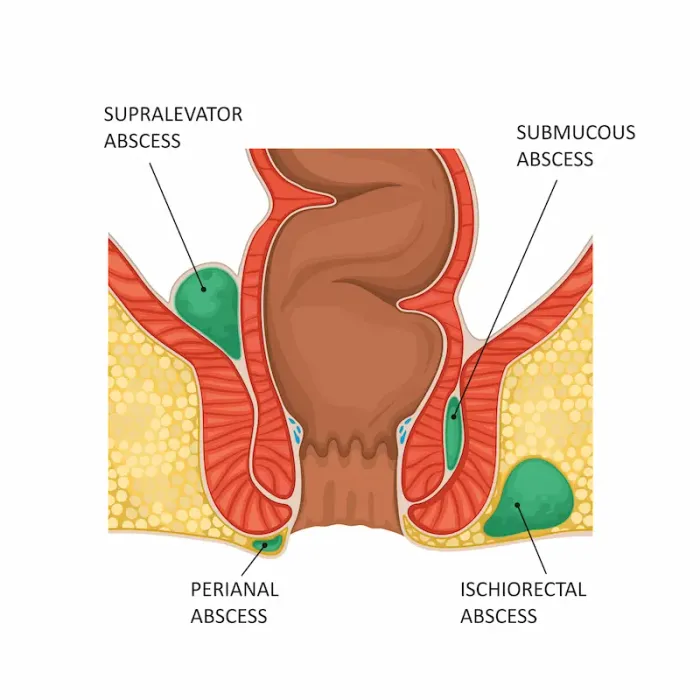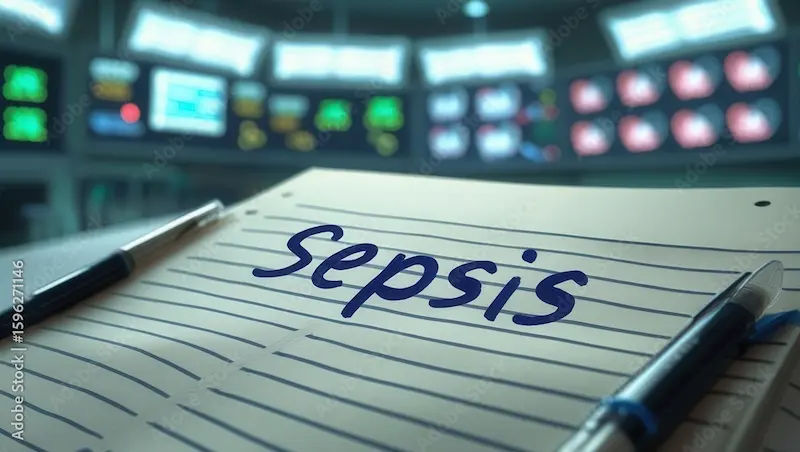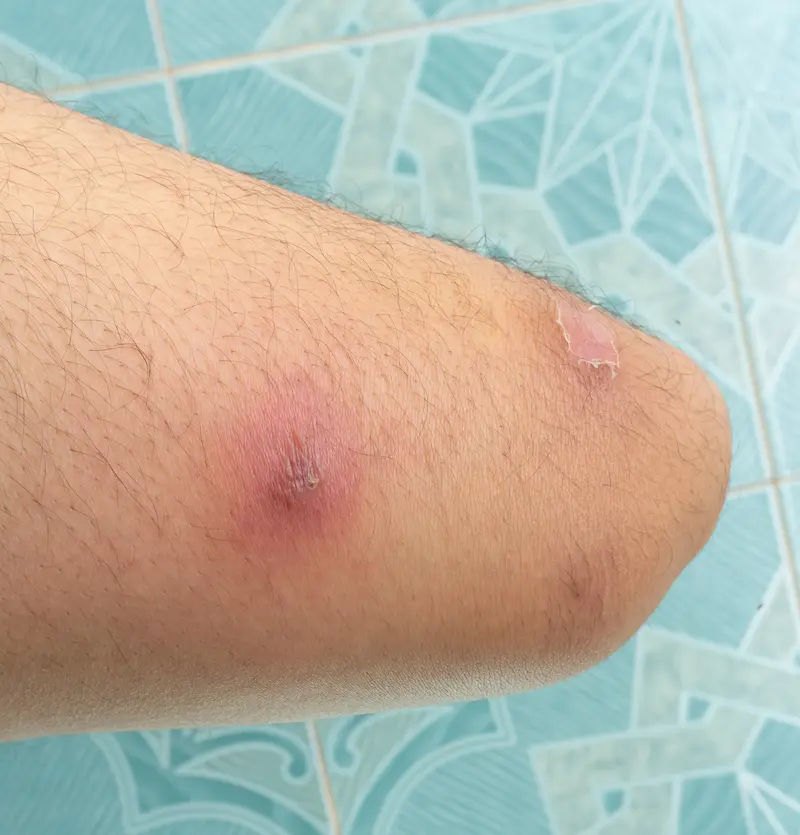Perianal Abscess Overview and Management
Know about the perianal abscess, what it is, symptoms, causes, diagnosis, and treatment options. Learn if it can be prevented.


Introduction
Dealing with pain or discomfort around the anal area can be distressing. If you’ve noticed swelling, redness, or pain near your anus, you might be experiencing a perianal abscess. This condition, while uncomfortable, is treatable with the right care. In this article, we’ll explain what a perianal abscess is, its symptoms, causes, and how you can manage it effectively.
What is a Perianal Abscess?
A perianal abscess is a pocket of pus that forms near the anus or rectum due to a bacterial infection. It often develops in the small glands around the anus when they become blocked and infected. If left untreated, the infection can worsen, leading to severe pain and complications like a fistula (an abnormal tunnel between the skin and the anal canal).
Consult Colorectal Surgeon for Personalised Advice
Symptoms of a Perianal Abscess
If you have a perianal abscess, you may experience:
• Pain (constant, throbbing, or sharp) near the anus
• Swelling and redness around the anal area
• Warmth or tenderness to the touch
• Pus discharge (if the abscess bursts)
• Fever or chills (if the infection spreads)
• Pain during bowel movements
If you notice these symptoms, it’s important to seek medical attention to prevent complications.
What Causes a Perianal Abscess?
Perianal abscesses usually occur due to:
1. Blocked anal glands – Tiny glands around the anus can get clogged, leading to infection.
2. Bacterial infection – Common bacteria like Staphylococcus or E. coli can cause abscesses.
3. Inflammatory bowel disease (IBD) – Conditions like Crohn’s disease increase the risk.
4. Diabetes or weakened immunity – People with diabetes or low immunity are more prone to infections.
5. Trauma or injury – Anal fissures or excessive straining during bowel movements can contribute.
How is a Perianal Abscess Diagnosed?
A doctor can diagnose a perianal abscess through:
• Physical examination – Checking for swelling, redness, and tenderness.
• Imaging tests – In some cases, an ultrasound or MRI may be needed to locate deep abscesses.
• Blood tests – To check for signs of infection.
Get Your Health Assessed
If you suspect an abscess, avoid self-treatment and consult a healthcare provider for proper evaluation.
Treatment Options for Perianal Abscess
1. Medical Treatment
• Incision and drainage (I&D) – The most common treatment, where a doctor makes a small cut to drain the pus, providing immediate pain relief.
• Antibiotics – If the infection is severe or spreading, antibiotics may be prescribed.
2. Home Care & Pain Management
• Warm sitz baths – Soaking in warm water 3-4 times a day helps reduce pain and promote drainage.
• Pain relievers – Over-the-counter medications like ibuprofen or acetaminophen can ease discomfort.
• Keeping the area clean – Gently wash with mild soap and water to prevent further infection.
3. Lifestyle & Dietary Changes
• High-fibre diet – Eating fibre-rich foods (fruits, vegetables, whole grains) softens stools, reducing strain during bowel movements.
• Staying hydrated – Drinking plenty of water prevents constipation.
• Avoiding prolonged sitting – Sitting for long periods can worsen discomfort.
When to See a Doctor?
Seek immediate medical help if you experience:
• Severe pain or swelling
• High fever or chills
• Difficulty passing urine
• Recurrent abscesses (could indicate an underlying condition like Crohn’s disease)
Can a Perianal Abscess Be Prevented?
While not all abscesses can be prevented, you can lower your risk by:
• Maintaining good anal hygiene
• Eating a fibre-rich diet to avoid constipation
• Managing conditions like diabetes or IBD properly
Final Thoughts
A perianal abscess can be painful, but with timely medical care and proper hygiene, recovery is possible. If you suspect an abscess, seek help early to avoid complications. Stay healthy, stay informed.
Consult Colorectal Surgeon for Personalised Advice
Consult Colorectal Surgeon for Personalised Advice

Dr. Sunil Kaul
General Surgeon
30 Years • MBBS, MS, FICS, FIMSA, FMAS
Delhi
Apollo Hospitals Indraprastha, Delhi
(25+ Patients)

Prof Dr Pawanindra Lal
Minimal Access/Surgical Gastroenterology
31 Years • MS, DNB, FCLS, FRCS(Ed,Glasg,Eng,Irel), FACS, FAMS, FFSTEd
Delhi
Apollo Hospitals Indraprastha, Delhi

Dr. Aloy Jyoti Mukherjee
General Surgeon
20 Years • MBBS, MS, MNAMS, FALS, FMAS, FIAGES, Robotic
Delhi
Apollo Hospitals Indraprastha, Delhi

Dr. Ramalinga Reddy
General Physician
5 Years • MBBS MD General medicine
Bengaluru
PRESTIGE SHANTHINIKETAN - SOCIETY CLINIC, Bengaluru

Dr. Kavit Shrishrimal
General and Laparoscopic Surgeon
5 Years • M.B.B.S., MS, FMAS
Pune
Apollo Clinic, Viman Nagar, Pune
Consult Colorectal Surgeon for Personalised Advice

Dr. Sunil Kaul
General Surgeon
30 Years • MBBS, MS, FICS, FIMSA, FMAS
Delhi
Apollo Hospitals Indraprastha, Delhi
(25+ Patients)

Prof Dr Pawanindra Lal
Minimal Access/Surgical Gastroenterology
31 Years • MS, DNB, FCLS, FRCS(Ed,Glasg,Eng,Irel), FACS, FAMS, FFSTEd
Delhi
Apollo Hospitals Indraprastha, Delhi

Dr. Aloy Jyoti Mukherjee
General Surgeon
20 Years • MBBS, MS, MNAMS, FALS, FMAS, FIAGES, Robotic
Delhi
Apollo Hospitals Indraprastha, Delhi

Dr. Ramalinga Reddy
General Physician
5 Years • MBBS MD General medicine
Bengaluru
PRESTIGE SHANTHINIKETAN - SOCIETY CLINIC, Bengaluru

Dr. Kavit Shrishrimal
General and Laparoscopic Surgeon
5 Years • M.B.B.S., MS, FMAS
Pune
Apollo Clinic, Viman Nagar, Pune




